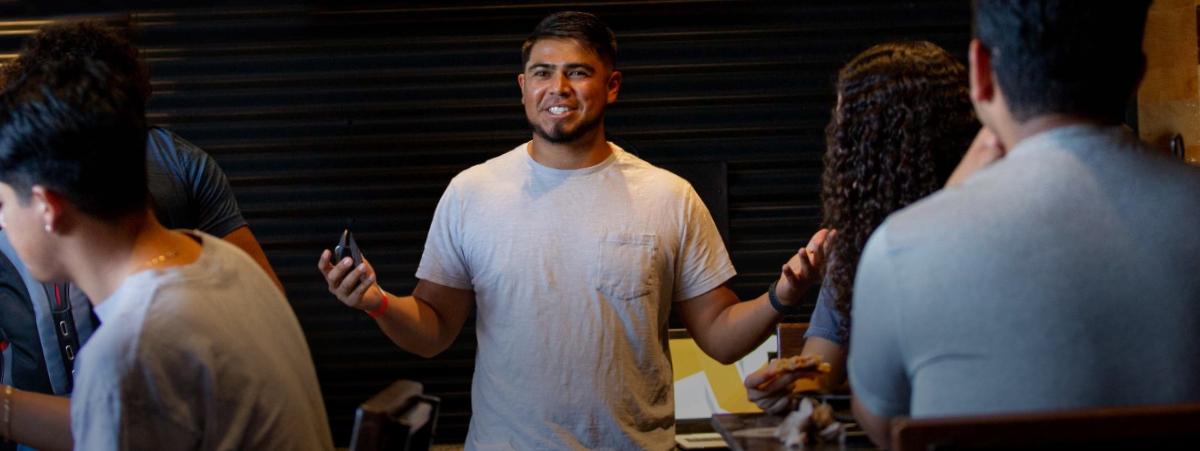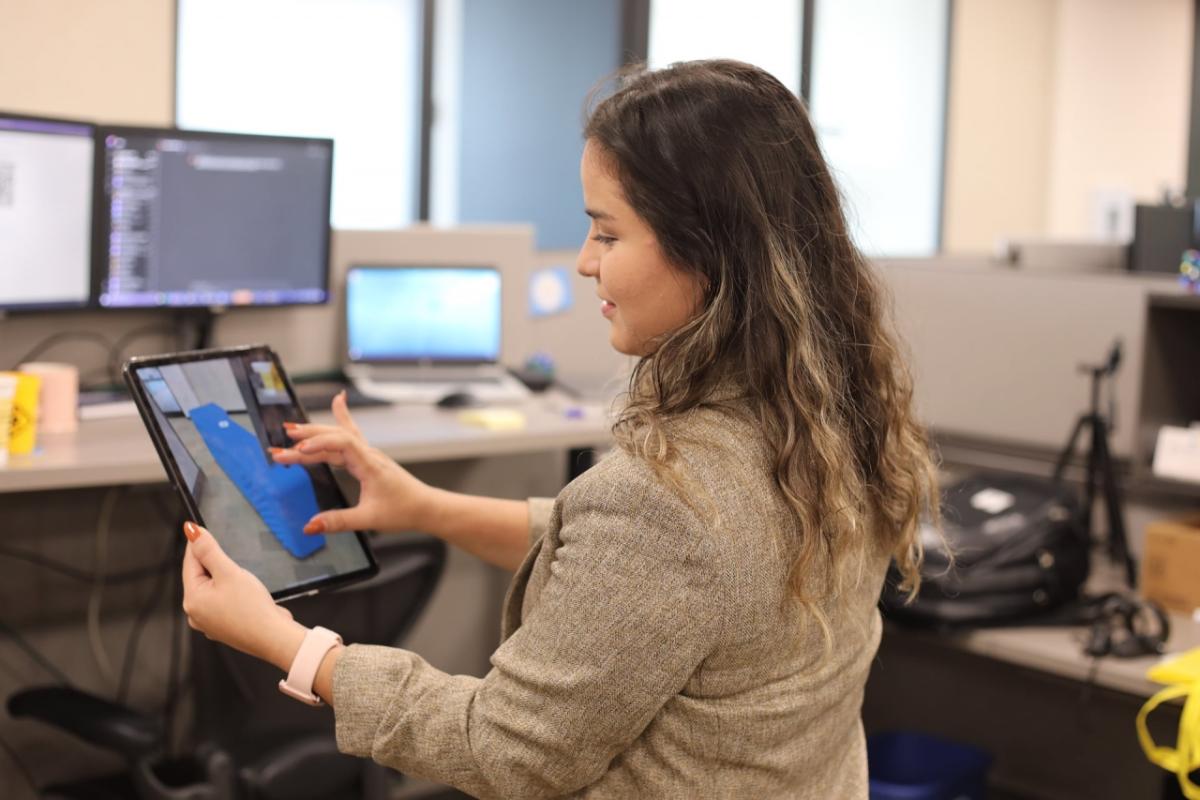Paying It Forward: How Mentors are Helping Open Career Doors at Koch
Felipe Lopez faced a number of speedbumps in college that threatened to impede his efforts to earn a degree. He worked three jobs to pay tuition, making it harder to focus on classes. As the first in his family to attend college, there was no one to show him the ropes, so he learned about internships, networking and how to write a resume through trial and error.
Those tough years shuttling between jobs and campus on public transportation stuck with him, even after a clutch of scholarships and an internship at Koch helped relieve the pressure. That’s why Felipe, now a senior business analyst at Koch Global Services in Wichita, decided to help smooth the way for kids like him.
At Koch, Felipe explains, he saw a chance to build on the company’s long-running commitment to award scholarships to Hispanic students by implementing a mentorship component to the Kansas Hispanic Education & Development Foundation Koch Scholars Program. The program mentors students to help them succeed in college, navigate the workforce and ultimately maximize their potential through greater opportunities to interact and build mentoring relationships with Koch employees – and potentially apply for a role at Koch down the road.
“I want to be that mentor for others that they never knew they would have,” says Felipe, 28, who grew up in Ulysses, Kansas, and joined Koch full time in 2017. “Anyone who’s been able to offer me mentorship or some kind of guidance, I’ve always listened to them and their point of view. I’ve always taken their input and put it toward my situation.”
Currently, Hispanic Americans hold just 4% of executive roles in the United States, even though they make up around 17% of the U.S. workforce, according to a University of Massachusetts Amherst study published by The Conversation. They are particularly underrepresented in STEM-related jobs, which experts attribute to a lack of mentoring opportunities, socioeconomic issues and inadequate access to relevant higher education courses, according to Pew Research Center.
To get the program off the ground, Felipe persuaded a dozen largely Hispanic engineering, IT and finance staff to sign up as mentors and looked to match them with the 18- to 22-year-old students based on their common interests and backgrounds.
Felipe, who mentored four of the 28 students himself, shares stories of how he balanced work and school while helping his mentees craft their resumes, scout out internship opportunities and start to build valuable networks.
“There’s a bunch of phenomenal students we get to work with, day in, day out,” says Felipe.
For Jen Alfaro, a Wichita State mechanical engineering major, becoming involved with the mentorship program helped her earn an internship at Koch subsidiary INVISTA, where she is now helping develop augmented reality apps and learning to code.
After taking part in the NASA Spacesuit User Interface Technologies for Students Challenge to design technology to help astronauts explore the moon, Jen was set to intern at an aerospace company until Felipe reached out to encourage her to apply for a Koch placement instead.
Felipe explained the importance Koch puts on personal fit and walked her through the company’s eight Guiding Principles to help give her a solid grasp of the corporate culture, she says.
For Jen, 21, who moved to the U.S. from Nicaragua seven years ago, being mentored has provided an invaluable chance to explore the engineering-related roles available and create a strong network of industry connections.
“From mentorship, what I mainly wanted to gain was insights into how the industry works, how you become a professional, how you navigate getting your first job or even getting an interview,” says Jen, who is now considering a master’s in digital transformation technology.
“We’ve been able to give feedback on how to improve the program from a mentee’s perspective, which has been very valuable because it’s going to help the people who come after me.”
More than ever, companies wanting to attract and retain top talent are coming to appreciate that diversity is a two-way street, says Felipe. High-flying students like Jen have myriad options and are increasingly looking to join firms where people from diverse backgrounds hold senior management roles.
“When I see a diverse background of leadership, then that gives me a sense of hope that I could do that, I could be that one day,” says Felipe.
Actively involved since college with organizations committed to supporting and promoting diversity, Felipe recently won the Volunteer Making a Difference award from the Kansas Hispanic Education and Development Foundation.
Now he is looking forward to hosting in-person team-building and volunteering events for mentees who, because of the pandemic, have missed out on building the peer relationships and corporate connections that helped him succeed.
Personally, he believes there is no end date on mentoring, and he continues to seek and absorb advice from his own Koch mentors about how to develop his career at the company.
He readily admits that he gets as much out as he puts in to his work to level the playing field for the Hispanic engineers and executives of the future.
“It’s a 10 out of 10. It gives me the best satisfaction — I cannot tell you how awesome it is that I get to do what I get to do.”



